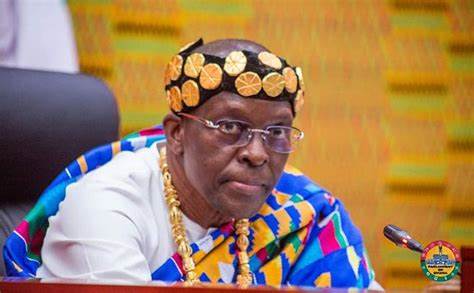The Speaker of Parliament, Alban Bagbin, has taken a decisive step by suspending the consideration of Ministers and Deputy Ministers of State nominated by President Akufo-Addo. This move comes amidst a backdrop of legal complexities and tensions between the legislative and executive branches of the Ghanaian government.
Background
Bagbin’s decision stems from an interlocutory injunction filed at the Supreme Court by MP for South Dayi, Rockson-Nelson Etse K. Dafeamekpor. This injunction has rendered Parliament unable to sanction new ministers nominated by President Akufo-Addo. Additionally, the presidency issued a cease and desist letter to Parliament, restraining them from transmitting the Bill on Human Sexual Rights and Family Values for the President’s assent, citing an ongoing legal process as grounds for their directive.
Bagbin’s Decision and Response
In response to these legal challenges, Bagbin emphasized Parliament’s inability to proceed with the approval of new ministers under similar circumstances. He highlighted the threat posed to legislative authority and democratic principles, expressing concerns over the erosion of foundational checks and balances established to uphold democracy.
Legal Implications and Challenges to Democracy
The ongoing scenario not only affects immediate legislative items but also raises significant legal implications for governance. Executive actions restraining parliamentary processes undermine the democratic fabric of the nation, threatening the separation of powers and the rule of law.
Court Involvement and House’s Decision
The court process initiated by Dafeamekpor further complicates the situation, leading to Parliament’s decision to halt consideration of nominations until the court’s determination. This underscores the importance of respecting legal processes and upholding the rule of law in democratic governance.
Implications and Way Forward
The suspension of ministerial nominations highlights the need for a concerted effort to resolve the deadlock between Parliament and the Executive. It is crucial to find a way forward that respects constitutional frameworks while ensuring effective governance and accountability.
Conclusion
Alban Bagbin’s decision to suspend consideration of ministers underscores the delicate balance between executive and legislative powers in Ghana’s democracy. It calls attention to the necessity of upholding the rule of law and preserving democratic principles amidst legal challenges and political tensions.
FAQs:
- What prompted Alban Bagbin to suspend consideration of ministers?
- Bagbin suspended consideration following an interlocutory injunction and a cease and desist letter issued by the presidency, citing legal challenges.
- Why is Parliament unable to proceed with ministerial approvals?
- Legal complexities, including ongoing court processes and directives from the presidency, have rendered Parliament unable to sanction new ministers.
- What are the broader implications of this situation on Ghana’s democracy?
- The situation highlights the fragility of democratic institutions and the importance of upholding constitutional frameworks to preserve democracy.
- How can the deadlock between Parliament and the Executive be resolved?
- Resolving the deadlock requires a commitment to respecting legal processes, fostering dialogue, and upholding democratic principles.
- What role does the rule of law play in this scenario?
- Upholding the rule of law is paramount in ensuring accountability, transparency, and the functioning of democratic institutions in Ghana.







